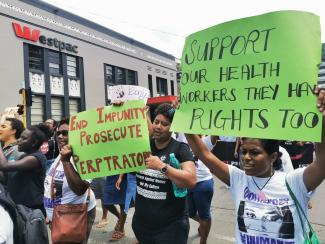From US $40 Billion to US $2 Billion: unpacking the real numbers behind Generation Equality funding pledges
The Generation Equality Forum (GEF) closed in July with the announcement that US $40 billion was pledged to advance gender equality worldwide. Four months after the GEF, we are still waiting for UN Women to make the full details of funding commitments publicly accessible.

